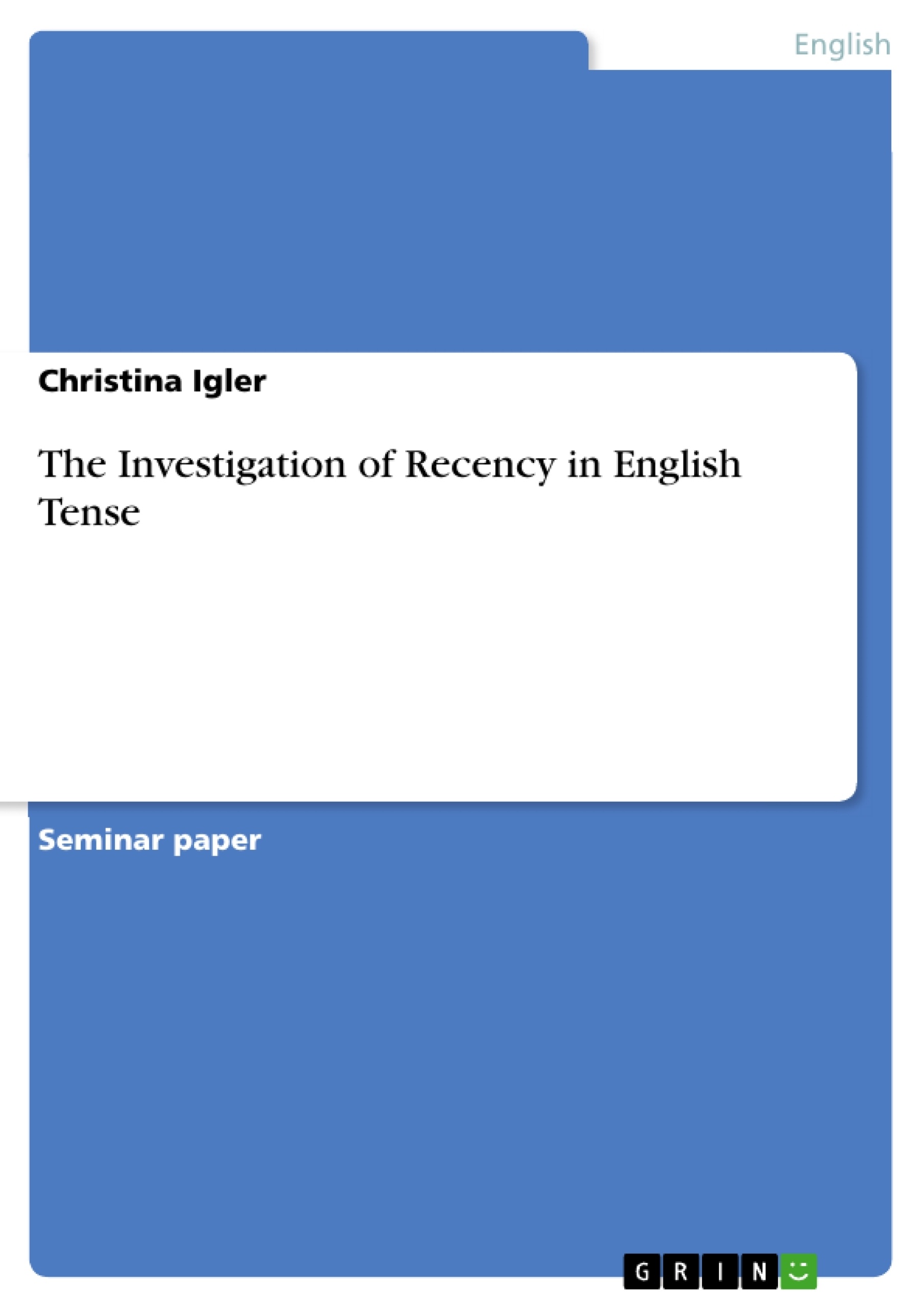In this paper, I will give an overview as to what recency connotes in English tensed sentences, where and when it occurs and how it is procured. Lastly I will
evaluate the poll that I created regarding the matter of recency and list the insights that it lead to, focussing on the problem that recency faces, without specific markers, to find out whether simple past and past progressive, as well as simple present and present perfective, can be replaced by one another.
Inhaltsverzeichnis (Table of Contents)
- Introduction
- Recency – terminological problems
- Creation of Recency
- Tense
- Simple Present
- Present Perfective
- Past Perfect
- Past Progressive
- Simple Past
- Recency Markers
- Context Dependency
- Tense
- Survey
- Methodology
- Analysis and Results
- Conclusion
Zielsetzung und Themenschwerpunkte (Objectives and Key Themes)
This paper aims to explore the concept of recency in English tensed sentences. It examines how recency is grammatically constructed and analyzes its occurrence and creation in different tense forms. The paper also investigates the role of recency markers and context in conveying immediacy.
- Defining recency and its relation to tense
- Exploring the grammatical construction of recency in English
- Analyzing the role of tense forms in conveying recency
- Examining the impact of recency markers and context on immediacy
- Investigating the use of past tenses and present tenses in relation to recency
Zusammenfassung der Kapitel (Chapter Summaries)
The first chapter sets the stage by introducing the concept of recency and its significance in English grammar. It explores the ambiguity surrounding its definition and establishes the need for a comprehensive analysis.
Chapter two delves into the terminological problems surrounding recency, examining various definitions and exploring the challenges of defining its scope and application in different contexts.
Chapter three focuses on the grammatical construction of recency, exploring how it is achieved through tense, recency markers, and context dependency. It examines the role of different tense forms in conveying recency and analyzes how contextual factors influence the interpretation of immediacy.
Chapter four outlines the methodology and results of a survey conducted to analyze the use of past tenses and present tenses in relation to recency. It examines the findings and discusses the implications of the results.
Schlüsselwörter (Keywords)
This paper primarily focuses on the concepts of recency, tense, immediacy, and context dependency. It explores the grammatical construction of recency and analyzes its occurrence in English tensed sentences. Key themes include the role of tense forms, recency markers, and contextual factors in conveying immediacy.
Frequently Asked Questions
What does "recency" connote in English grammar?
Recency refers to the quality of an action having occurred very close to the moment of speaking (immediacy).
Which English tenses are typically used to express recency?
Recency is often expressed using the Present Perfective, Simple Past, Past Progressive, or even the Simple Present depending on the context.
What are "recency markers"?
These are specific words or phrases like "just," "recently," or "lately" that explicitly indicate that an action happened a short time ago.
How does context dependency affect the interpretation of recency?
Without specific markers, the listener relies on the situation and surrounding sentences to determine if an action is intended to be perceived as "recent."
Can the Simple Past and Present Perfect be used interchangeably for recent events?
The paper evaluates whether these tenses can replace each other in certain contexts, a topic explored through a survey on linguistic preferences.
- Quote paper
- Christina Igler (Author), 2013, The Investigation of Recency in English Tense, Munich, GRIN Verlag, https://www.grin.com/document/267452



